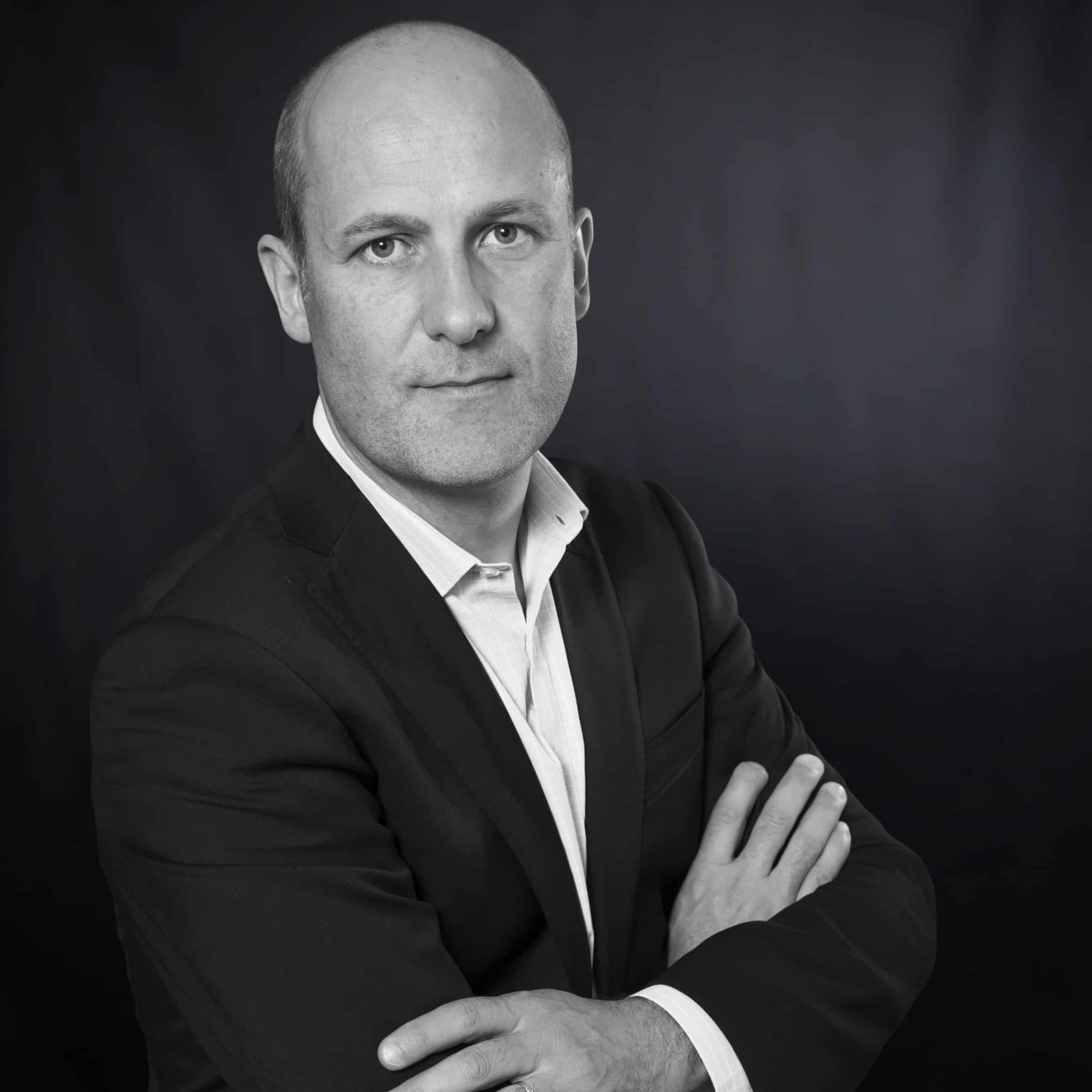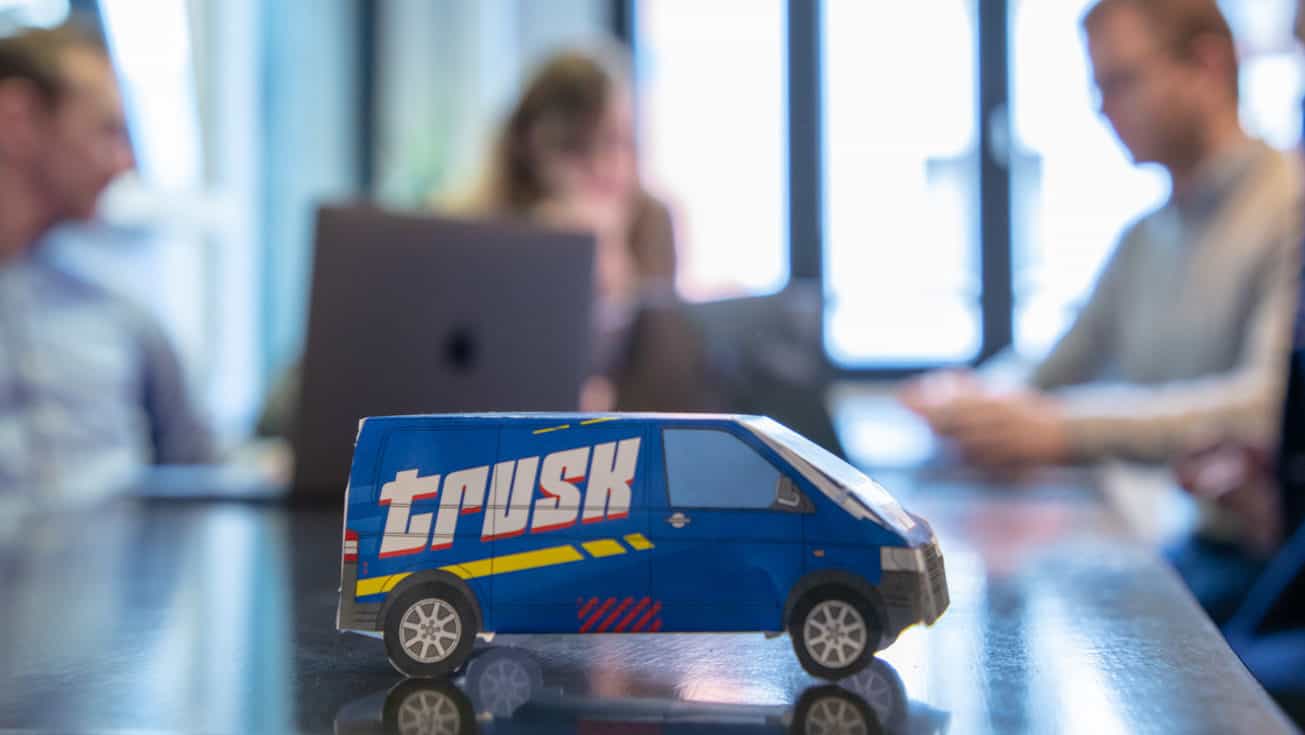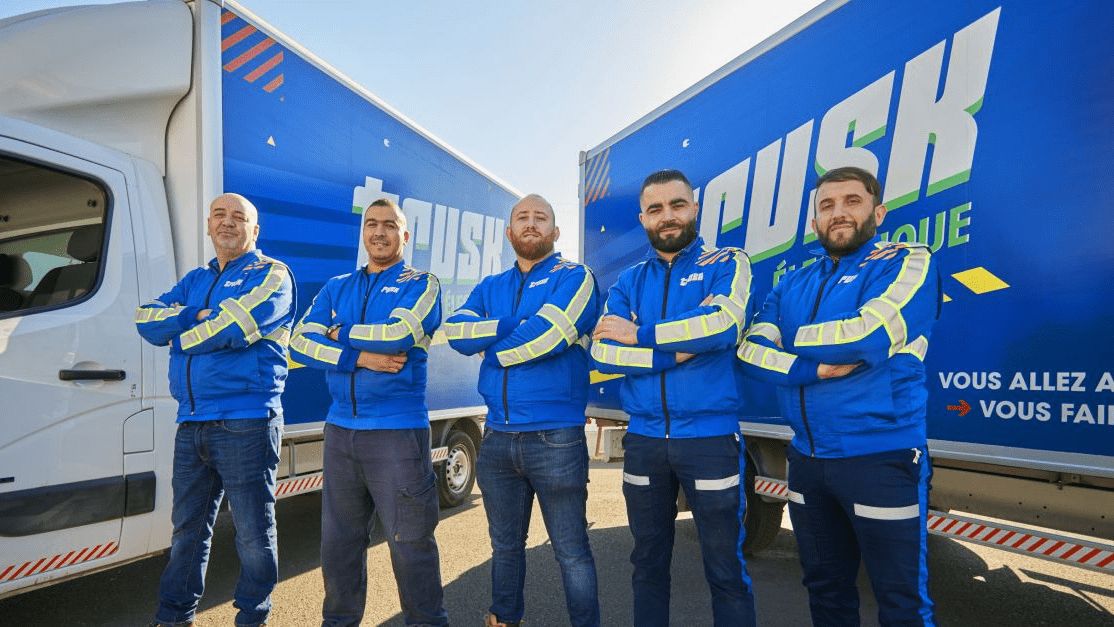With 24 employees and the backing of a multi-billion parent company, Via ID invests in mobility startups around the globe. In the spring of 2019, Via ID sold a car-sharing startup for USD 300 milllion. In this interview, Via ID’s CEO Yann Marteil, talks about scooters, mobility as an investment topic, and Via ID’s first co-investment with Verve Ventures, the delivery startup Trusk.

CEO, Via ID
Yann Marteil is CEO of Via ID, a corporate accelerator focused on eco-mobility that belongs to the Mobivia group (see below). Yann has worked in investment banking and in small and large corporations. He graduated from Institut d’Etudes Politiques de Paris, HEC (MBA) and Paris Sorbonne (Master of Geography).
Mobivia is the leading auto maintenance and repair chain in Europe active in 20 countries under 19 different brands (Norauto, A.T.U, Midas, Carter-Cash…), with more than 2,070 workshops and retail outlets, more than 22,000 employees and total annual revenue of around €3 billion.
Why did the large corporation Mobivia establish Via ID as an in-house startup accelerator?
Mobivia is a family business that started with car repairs in France in the 1970s and is now active in 20 countries mostly in Europe. Mobivia’s management has realized that the domain of mobility as we know it is about to be disrupted. Therefore, it established Via ID in 2010 to explore investment opportunities in new forms of mobility, especially urban mobility. The conviction grew that these new companies are so attractive that the family decided to do it big time and put a lot of funds to work. Via ID has become an important third pillar next to the traditional two sectors of car repairs and distribution. We have offices in Lille, Paris, Singapore, Berlin and San Francisco and have already made 21 investments in Europe, in the US, and in Asia. We’re also busy creating alliances with other large corporates such as Bridgestone or Total that have an interest in the future of mobility.
Why do you call Via ID a corporate accelerator instead of just calling it corporate venturing like everybody else?
Because it is much more than just an investment arm of the firm. Via ID has 24 employees of which only 4 have a financial background. We are industry experts, we look only at the mobility space and nothing else, and we’re here to help our startups in marketing, legal and other matters and above all, connect them with a world-class network that includes our own firm.
You’re in charge of Via ID since 2010. What has this approach yielded so far?
In 2018, our portfolio company Smoove won the contract for the bicycle sharing system Vélib in Paris. It is the biggest of its kind in the World, with over 100’000 rides per day. Initially, we had some technical issues, but now the system works well. Another portfolio company, Heetch, which competes with Uber, has recently raised 34 million Euro to accelerate its expansion in Africa. And last but not least there is the car-sharing startup Drivy, which I followed since its inception in 2010 and where we were an important shareholder. It was sold in April 2019 to competitor Getaround for 300 million Dollars. These examples show that mobility is a very attractive space to invest in.
What are themes that will shape mobility in the future that you find most attractive to invest in?
The first one is mobility-as-a-service. This is a topic we’re very active in with startups such as Ubigo, Go-Jek, Klaxit, and Felix. The second big trend is soft mobility, which means urban transport apart from cars. Soft mobility, which includes bicycles, scooters, and motorcycles, is an urgently needed solution for today’s congested city centers. And the third topic we’re very interested in is sea and air transport, things like drones and river shuttles. All the big cities on this planet are next to a body of water.
But there also must be startups in that space that investors should avoid because they’re just hype, right?
Every investor makes mistakes. But yes, it is important to know the space and think business plans through, otherwise, you just end up fueling a bubble that will eventually burst. Some time ago, in an interview with a French newspaper, I predicted that bicycle-sharing companies such as ofo and Mobike would fail in Europe in two years. I was right, except it just took them one year to implode. Take the example of the scooters you now see appearing everywhere. Most of them will disappear as quickly as they came.
There are now so many different scooters in the streets I can’t remember the names. Which ones will fail?
All of them probably. You can’t make money with this model. Lime and Bird will just survive because they’ll be part of a multimodal offering. You’ll hail a car from your Uber app and then hop on a Lime scooter for a certain part of the journey, for example.

Invest in Startups
As one of Europe’s most active venture capital investors, we grant qualified private investors access to top-tier European startups. With investments starting at EUR/CHF 10’000, you can build your own tailored portfolio over time and diversify across stages and sectors.
Any other things you avoid?
In general, we don’t invest in hardware startups, we’re oriented towards services and platforms.
Let’s talk about Via ID and Verve Ventures’ first co-investment, the last-mile delivery startup Trusk. The startup was accelerated by Via ID since 2016. How did you concretely help Trusk develop?
We helped Trusk with several topics like recruitment and legal details and we helped put this financing round together. But most importantly, the Mobivia company has very close ties to big retail companies like Leroy Merlin, so we actually helped Trusk to get business. We’ll continue to do so in the future. What we like about Trusk is that the company has two very bright and able founders and that the market they chose to go after is just incredibly large.
What are the most important challenges Trusk will face?
Finding the right path to grow without dissipating forces is paramount. Trusk has all that it needs as a company now, the clients, the team, the technology. Now Trusk simply needs to grow step by step and stay focused. Trusk has big corporate customers and they can be very demanding and ask for endless modifications of what you offer. It is important to say no to such requests and do only things that are scalable.
What development do you foresee for Trusk?
The first topic is internationalization. Trusk will follow their clients to other countries in Europe and establish itself. The second line of development is the brand. I think that Trusk will become the brand of choice for the delivery of heavy goods to the home. Imagine how many shops there are that sell furniture, do-it-yourself-material or household goods that could become Trusk’s clients. Trusk hasn’t even scratched the surface of the potential it has.
Written by
WITH US, YOU CANCO-INVEST IN DEEP TECH STARTUPS

Verve's investor network
With annual investments of EUR 60-70 mio, we belong to the top 10% most active startup investors in Europe. We therefore get you into competitive financing rounds alongside other world-class venture capital funds.
We empower you to build your individual portfolio.
More News
29.07.2021
Why we invested
in Otoqi
Following the announcement of our 10th investment in France, we explain the reasons for our investment in Otoqi.
20.04.2020
Trusk (Delivery): EUR 7m Series A
Trusk has raised EUR 7 million from Daphni, Via ID, Global Founders Capital, Kima Ventures and investiere. investiere contributed EUR 1.7 million to this round.
03.09.2019
“Switzerland is the first market on our expansion roadmap”
The French startup Trusk makes deliveries faster and more transparent and has won over important clients like Ikea. The co-founders Thomas Effantin and Sébastien Tronel explain how they achieved strong growth with a deceptively simple idea.
Startups,Innovation andVenture Capital
Sign up to receive our weekly newsletter and learn about investing in technologies that are changing the world.




